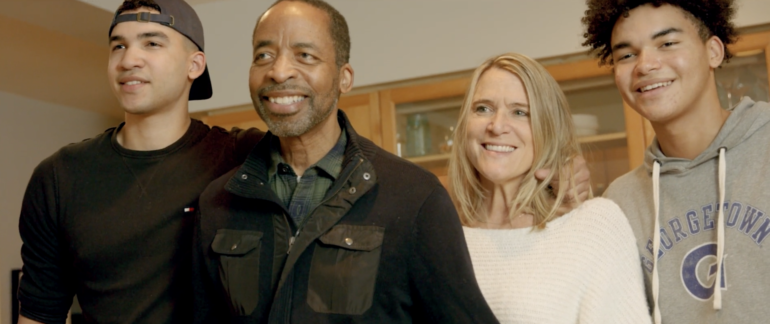Some 200,000 to 600,000 people actively live with younger-onset Alzheimer’s — a category of Alzheimer’s disease reserved for those affected under the age of 65. A “sizeable niche” of the larger Alzheimer’s community, yet one that is devastatingly overlooked and under-represented, said Tessa Garcia McEwen, AM, LCSW from The Memory Center at UChicago Medicine during the panelist discussion that followed the showing of “Shifting the Narrative: The Story of Lorenzo’s House.”
The twelve-minute film was the core of the panelist discussion on Wednesday, May 3 hosted by Lorenzo’s House — a start-up that creates holistic care for the loved ones of those with younger-onset Alzheimer’s — in partnership with some of Chicago’s medical institutions including, The University of Chicago Medicine; Northwestern Medicine; Advocate Aurora Health; RUSH; and Embodied Labs — based in Los Angeles.
Panelists included: McEwen; Dr. James Mastrianni, MD, PhD of The Memory Center at UChicago Medicine; Dr. Darren R. Gitelman, MD of Advocate Memory Center at Advocate Aurora Health; Dr. Neelum Aggarwal, MD of Rush Alzheimer’s Disease Center at Rush University Medical Center; Carrie Shaw, MS, CEO and Founder of Embodied Labs; Sherry and Jessica Christensen, caregiver family; Diana Cose, Founding Executive Director of Lorenzo’s House, as well as her sons Justin and Lucas Cose; and moderated by Darby J. Morhardt, PhD, LCSW of Northwestern Mesulam Center for Cognitive Neurology and Alzheimer’s Disease.
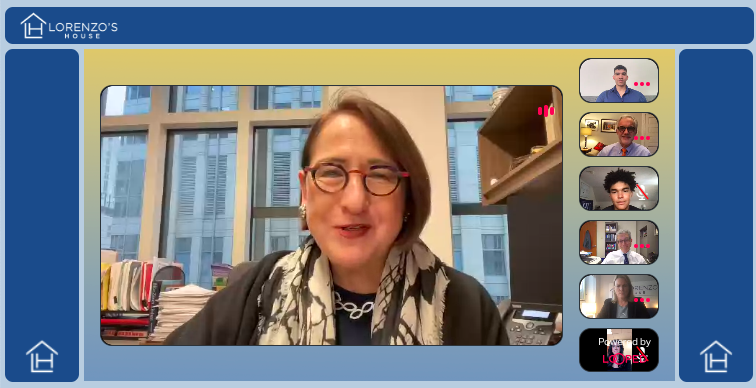
The short film primarily featured the family and medical caregivers of Larry “Lorenzo” Cose — the namesake of Lorenzo’s House, who lives with younger-onset Alzheimer’s. Diana Cose, who is Lorenzo’s wife, led the audience through the early stages of the diagnosis, the shift in familial and social relationships and the near-immediate steps she took to begin the Lorenzo’s House journey.
“I get up and choose living, and that is what he would want,” said Cose, who began the remarkable process of founding Lorenzo’s House just over a year ago. In that time, the organization has gone on to create a community bent on securing a place where those who experience this condition, and their loved ones, can receive dignity and mutual understanding through events and education.
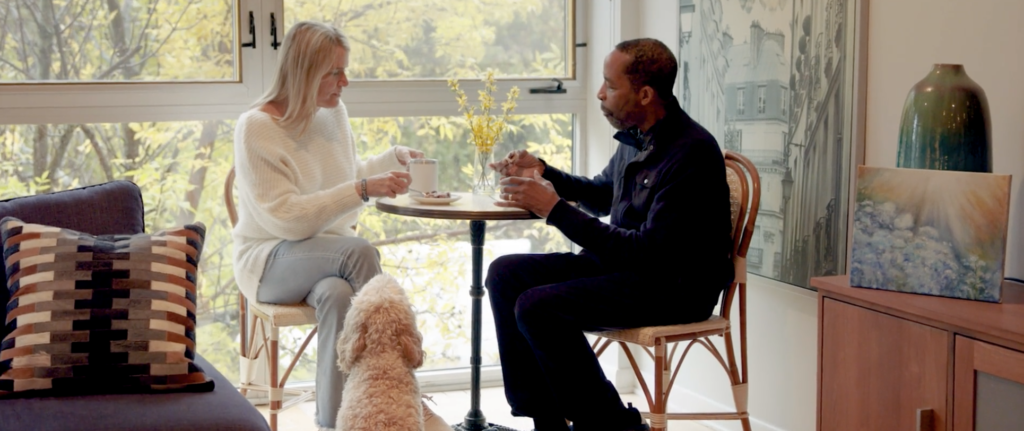
And yet, actively unifying and supporting the community of people who grapple with their loved one’s diagnosis is only one of the tiers Lorenzo’s House plans to climb in order to bring younger-onset Alzheimer’s into the light of day. Another is education, chiefly, among other medical practitioners. Panelist Dr. Aggarwal, stated that part of her role is to speak with doctors and specialists in order to supplement their understanding of the disease — particularly as more and more patients come forward, each looking for answers.
The answer often given to those seeking help is to enroll in classes or groups that support those living with Alzheimer’s. However, given that the community is generally reserved for people above the age of 65, it can be difficult to find the kind of support and stimulation right for someone who may still be in their 50s, 40s or even late-30s. Moreover, many clinical trials are not even open for those in the younger-onset category; making access to beneficial new strides in the field hard to come by.
Which is why Cose seeks to upheave the system and institute a new one that works for the people it serves. “When we build and design, we need to access voices of people who are walking the journey,” she said during the panel discussion.
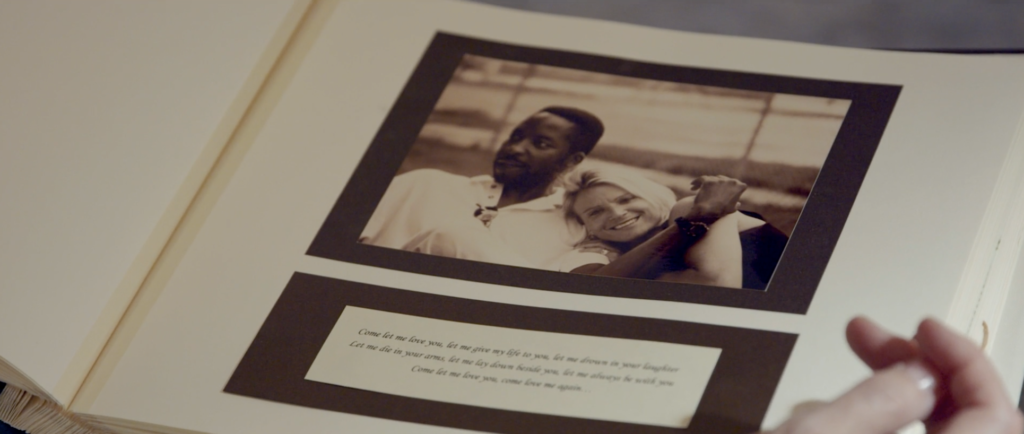
The future of Lorenzo’s House is one shrouded in light, just as Diana Cose suggests. With upcoming events such as the Youth Summit on June 21 — an activity-packed retreat for young people to find a shared, knowing support in the wake of a loved one’s diagnosis — the “path” away from darkness is illuminated by the groundbreaking efforts of people such as Diana and her sons — driven to bring the community into the light of day.
Update: With great sadness we inform readers that Larry “Lorenzo” Cose passed away August 2 due to complications from his years-long battle with younger-onset Alzheimer’s. Cose — survived by his wife, Diana, and two sons, Justin and Lucas — was a kind, passionate, Chicago-native who went on to be a reporter for The Chicago Sun-Times for many years as well as financial analyst. The Sun-Times published an article celebrating his life, as well.
The family kindly asks those looking to pay their respects to send donations to Lorenzo’s House — which serves both his legacy and the Alzheimer’s community. For more information on donating or the Lorenzo’s House mission, visit the Lorenzo’s House website.
More from Better:
- 10 Ways to Honor Asian American and Pacific Islander Heritage Month
- Chicago Restaurants Take Home Top Prizes at 2022 Jean Banchet Awards
- 31 of the Best Things to Do in Chicago and the Suburbs in May 2022
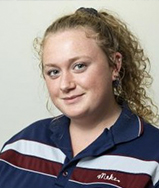
Margaret Smith is a Chicago-based writer and editor with a passion for socio-political storytelling about their community. They are a graduate of Columbia College Chicago.
